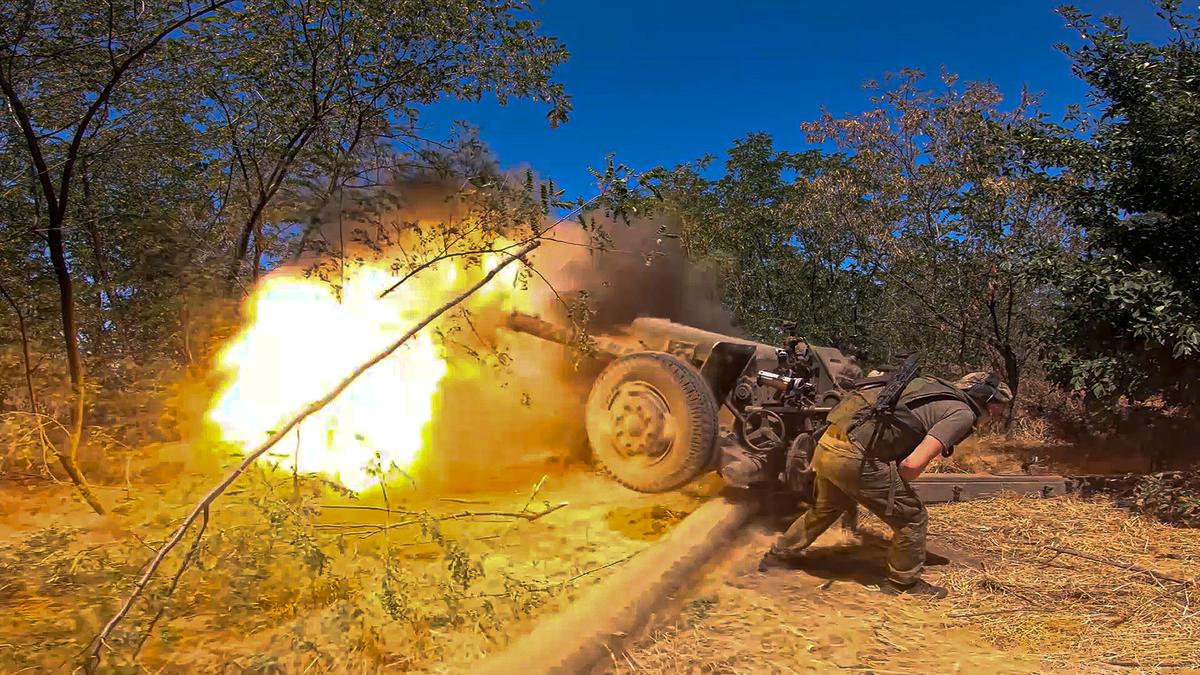The case of Sergei Mikhailov, a Russian journalist sentenced to eight years in prison for publishing critical information about the war in Ukraine, highlights the severe crackdown on dissent within Russia. Mikhailov’s arrest and conviction are emblematic of the chilling effect the Kremlin’s repressive laws are having on freedom of expression in the country.
A Journalist’s Conviction: A Symptom of Russia’s Repressive Environment
Mikhailov, editor of the online opposition channel “Listok” in the Altai region of Siberia, was arrested in the early days of the war in Ukraine. He faced accusations of “knowingly spreading fake information” about the Russian army, specifically for his online posts highlighting civilian deaths in Bucha and Mariupol. Prosecutors labelled his actions as “motivated by political hatred.”
The Consequences of Critical Reporting
Mikhailov’s case is far from isolated. Over 1,000 individuals have been prosecuted in Russia for criticizing the offensive in Ukraine since the war began. This demonstrates the lengths to which the Russian government is willing to go to suppress dissenting voices and maintain control over the narrative surrounding the war.
The Chilling Effect on Freedom of Speech
The prosecution of journalists like Mikhailov sends a clear message: criticism of the Kremlin’s actions in Ukraine is unacceptable and will be met with harsh consequences. This has a chilling effect on freedom of expression in Russia, making journalists and individuals fearful of expressing dissenting opinions.
Mikhailov’s Defense: A Voice Against State Propaganda
Despite the overwhelming pressure, Mikhailov stood by his reporting and offered a powerful critique of the Kremlin’s actions and its attempts to control information flow. He denounced the state narrative of portraying the Ukrainian leadership as “fascist” and acknowledged the detrimental impact of propaganda on Russian citizens.
Challenging the Fog of War
Mikhailov’s defense was not simply about the accuracy of his reporting but about combating the manufactured reality surrounding the war. He expressed his goal as preventing his readers from being misled by propaganda, becoming participants in the conflict, and ultimately harming the Ukrainian people.
A Moral Compass in a War-Torn World
Mikhailov’s words resonate with the crucial need for truth and accountability in times of war. His courage in standing up to the authorities, despite the heavy price he will pay, serves as an example of resistance to oppression and a reminder of the importance of upholding journalistic principles in the face of authoritarianism.
The Impact of Mikhailov’s Case
Mikhailov’s sentence has been met with international condemnation, with organizations such as Reporters Without Borders (RSF) denouncing it as an attack on press freedom. This case underscores the dire state of media freedom in Russia, where independent journalism is increasingly under threat.
The Broader Implications for Democracy
Beyond its immediate consequences for Mikhailov and the press, the case highlights the broader danger to democratic values within Russia. The suppression of critical voices and information control are hallmarks of authoritarian regimes, and Mikhailov’s ordeal represents a step toward silencing dissent and eroding democratic principles.
Takeaways
The case of Sergei Mikhailov underscores the urgent need to protect freedom of expression and press freedom in Russia. His conviction represents a stark warning about the consequences of dissent within a repressive environment. The international community must remain vigilant in calling out such injustices and supporting journalists and individuals working to uphold democratic principles in Russia and elsewhere.









